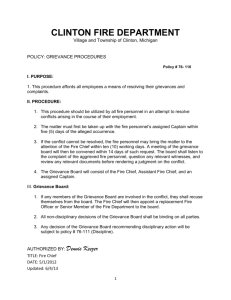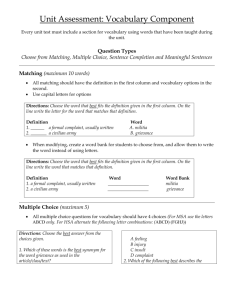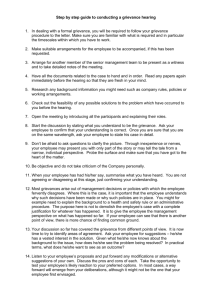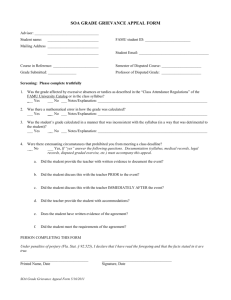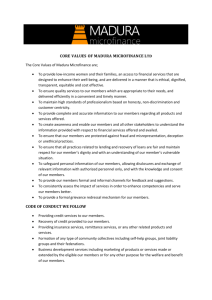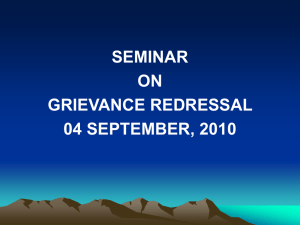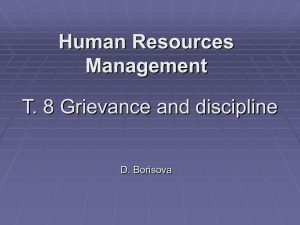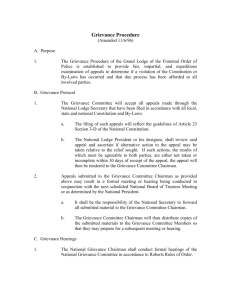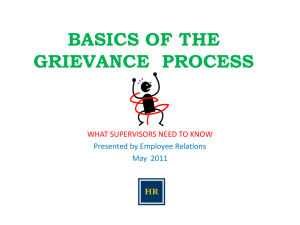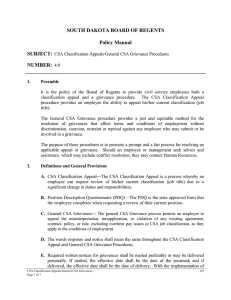GRIEVANCE PROCEDURE This grievance policy lays out the route
advertisement
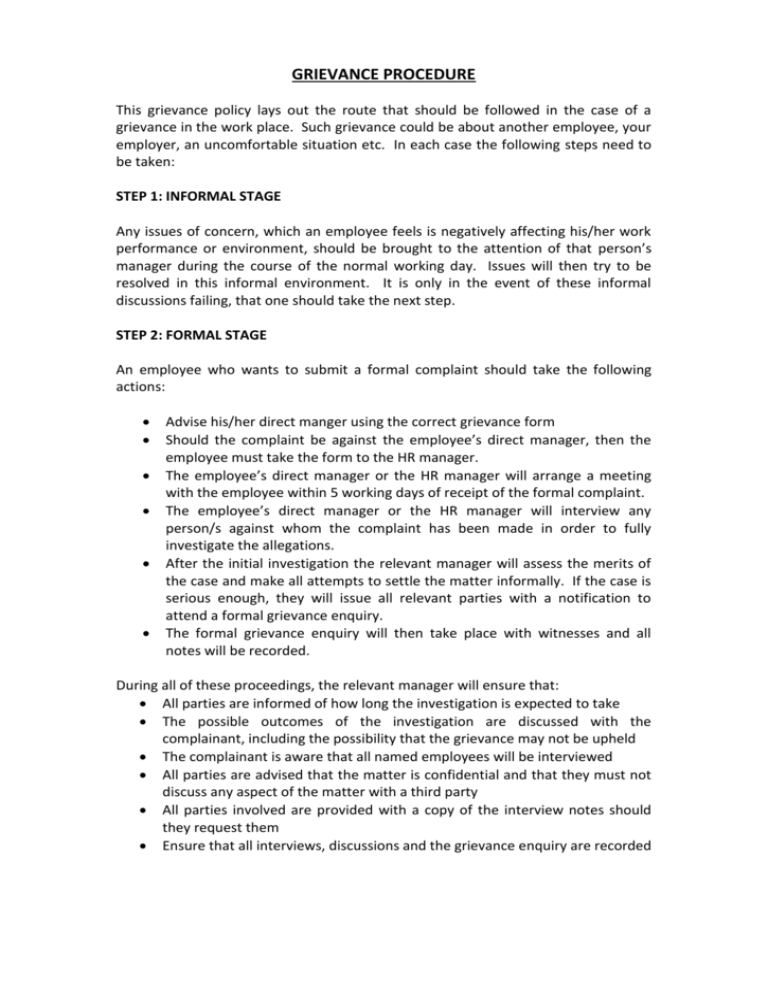
GRIEVANCE PROCEDURE This grievance policy lays out the route that should be followed in the case of a grievance in the work place. Such grievance could be about another employee, your employer, an uncomfortable situation etc. In each case the following steps need to be taken: STEP 1: INFORMAL STAGE Any issues of concern, which an employee feels is negatively affecting his/her work performance or environment, should be brought to the attention of that person’s manager during the course of the normal working day. Issues will then try to be resolved in this informal environment. It is only in the event of these informal discussions failing, that one should take the next step. STEP 2: FORMAL STAGE An employee who wants to submit a formal complaint should take the following actions: Advise his/her direct manger using the correct grievance form Should the complaint be against the employee’s direct manager, then the employee must take the form to the HR manager. The employee’s direct manager or the HR manager will arrange a meeting with the employee within 5 working days of receipt of the formal complaint. The employee’s direct manager or the HR manager will interview any person/s against whom the complaint has been made in order to fully investigate the allegations. After the initial investigation the relevant manager will assess the merits of the case and make all attempts to settle the matter informally. If the case is serious enough, they will issue all relevant parties with a notification to attend a formal grievance enquiry. The formal grievance enquiry will then take place with witnesses and all notes will be recorded. During all of these proceedings, the relevant manager will ensure that: All parties are informed of how long the investigation is expected to take The possible outcomes of the investigation are discussed with the complainant, including the possibility that the grievance may not be upheld The complainant is aware that all named employees will be interviewed All parties are advised that the matter is confidential and that they must not discuss any aspect of the matter with a third party All parties involved are provided with a copy of the interview notes should they request them Ensure that all interviews, discussions and the grievance enquiry are recorded STEP 3: OUTCOME After the necessary discussions and interviews with all involved parties or the completion of a formal enquiry, the relevant manager will decide whether or not the grievance is justified and what action should be taken to correct it. Please note that the company will always seek as much as possible a win-win solution. Whatever the outcome, it will be confirmed in writing and conveyed to all parties, with reasons for whatever actions have been decided. STEP 4: APPEAL STAGE If an employee is unhappy with the outcome of the proceedings, they have the right to appeal. The appeal must be put in writing to a more senior manager or the Human Resources manager, within 5 working days of receipt of the initial decision. The appeal will be heard by said manager and they will call a meeting with the employee within 5 days of receipt of the appeal. This will give enough time for any further investigations if necessary. The manager will then make a decision on the matter which will be final. There are no further levels of appeal within the company after this final decision has been reached. If the employee still feels that the outcome of this process is unfair or unjust, he/she may refer the matter to the CCMA within 30 days. EMPLOYEE NAME: _________________________________________________ SIGNATURE: ________________________________________________________ DATE: ______________________________________________________________


